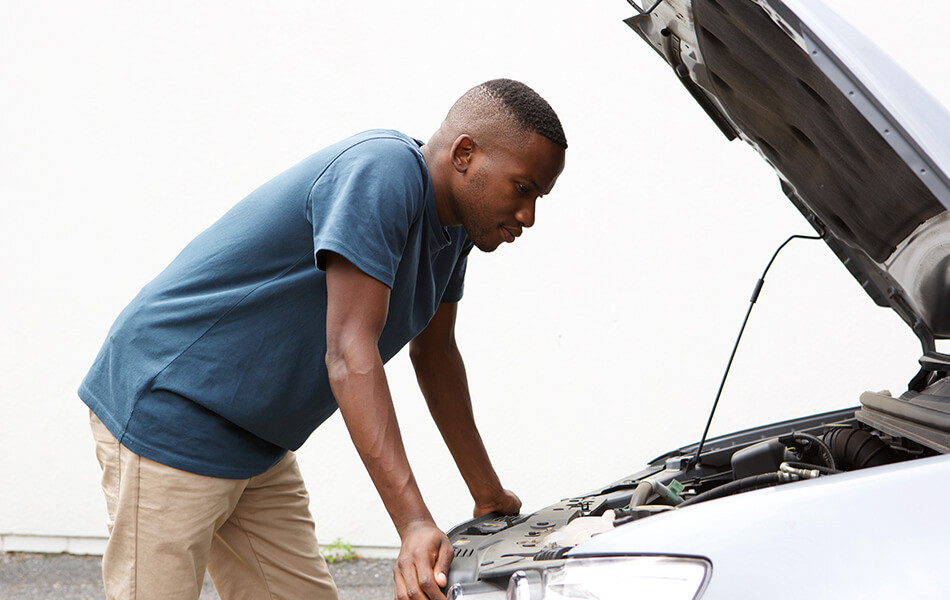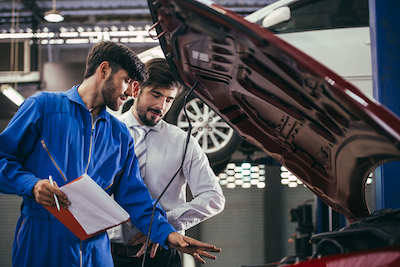Ultimate Car Fixing Checklist: Guarantee Your vehicle's Durability and Efficiency
Preserving the long life and performance of your car is a vital facet of accountable car ownership. Visualize driving a well-kept auto that purrs smoothly, takes you locations easily, and consistently does at its ideal. If you adhere to an extensive automobile fixing list that covers important elements of car upkeep, this vision is not unlikely. By adhering to a couple of key techniques and ensuring regular examinations, you can substantially expand the lifespan of your vehicle while optimizing its performance.
Routine Oil Modifications
Routine oil modifications are crucial for preserving the ideal performance and durability of your car. Engine oil plays a vital function in lubing the different elements of the engine, minimizing rubbing, and stopping overheating. In time, oil breaks down and ends up being contaminated with dirt and particles, which can endanger its performance. By sticking to a routine oil change schedule as advised by your automobile's maker, you can make sure that your engine continues to run smoothly and successfully.
Disregarding to alter your oil at the specified intervals can bring about a host of troubles, including decreased gas effectiveness, engine overheating, and potential damages to engine elements. Additionally, old and unclean oil can cause increased damage on your engine, eventually shortening its life-span. Investing in routine oil adjustments is a fairly simple and cost-efficient maintenance job that can have a considerable effect on the general wellness and efficiency of your vehicle. By remaining proactive with your oil adjustment schedule, you can aid avoid pricey repair services down the line and maintain your car running in leading condition.
Tire Upkeep and Rotation
Ensuring appropriate tire upkeep and turning is important for optimizing your automobile's longevity and performance capacity. Normal tire upkeep includes checking tire pressure, step depth, and overall problem. Effectively inflated tires improve fuel effectiveness, taking care of, and overall safety when driving. It is suggested to examine tire stress a minimum of once a month and before long road trips.
Tire rotation is one more vital facet of tire upkeep. Revolving your tires aids ensure even wear, extending their lifespan and improving overall performance. Tire rotation patterns vary depending on whether your automobile is front-wheel drive, rear-wheel drive, or four-wheel drive. As a basic rule of thumb, tires should be turned every 5,000 to 7,500 miles.
Along with tire rotation, it is necessary to have your wheels correctly aligned. Misaligned wheels can lead to uneven tire wear, affecting both efficiency and safety and security. Consistently evaluating your tires, revolving them, and straightening your wheels will not only expand the life of your tires yet likewise add to a smoother and safer driving experience.
Brake Inspection and Solution
Performing detailed brake examinations and timely servicing is paramount to keeping your car's safety and efficiency requirements. Your vehicle's brakes are a crucial part that needs regular focus to guarantee they function properly. Throughout a brake evaluation, a certified professional will check the brake pads, blades, calipers, and brake fluid degrees for site web any indicators of wear or damage. Prompt servicing can prevent prospective brake failures and crashes when traveling.
Brake pads need to be examined routinely, as auto brakes they put on down in time as a result of friction - car tuneup. Worn-out brake pads can lower braking effectiveness and increase stopping ranges, posing a security threat. Furthermore, examining the brake fluid degrees and making certain there are no leaks in the brake system is crucial for ideal brake efficiency
Routine brake servicing, consisting of brake pad replacements and rotor resurfacing, can extend the life of your brakes and protect against costly repair services over time. By prioritizing brake assessments and maintenance, you can drive with confidence knowing that your car's stopping system is operating correctly.
Fluid Levels and High Quality Examine
Keeping optimal fluid levels and high quality is critical for the smooth operation and longevity of your car. Consistently checking and maintaining proper levels of vital fluids such as engine oil, coolant, transmission fluid, brake fluid, power guiding liquid, and windscreen washing machine liquid is crucial to make certain that your automobile operates successfully. Reduced or infected liquids can lead to enhanced friction, getting too hot, rust, and eventually, expensive fixings.

Consistently checking and maintaining the high quality and levels of these fluids will certainly not only improve your automobile's performance yet also prolong its life-span, saving you money and time over time.
Battery Evaluating and Substitute

There are a number of methods to test a vehicle battery. One common approach is utilizing a multimeter to measure the voltage result. A healthy and balanced battery generally signs up around 12.6 volts. Furthermore, a load examination can identify the battery's ability to hold a cost under various problems. If your battery stops working these tests or is older than 3 to five years, it might be time for a replacement.

Final Thought
Finally, keeping your automobile via normal oil adjustments, tire upkeep, brake inspections, liquid degree checks, and battery screening is important for ensuring its longevity and performance. By following this ultimate auto repair checklist, you can prevent costly repairs and breakdowns, ultimately conserving you time and cash in the future. Focusing on these maintenance tasks Read More Here will help maintain your automobile running smoothly and effectively for years to come.
Ensuring correct tire upkeep and rotation is important for maximizing your automobile's durability and performance potential.Performing detailed brake examinations and prompt servicing is paramount to keeping your car's safety and efficiency requirements. Your vehicle's brakes are a critical part that requires regular interest to ensure they function properly. On a regular basis inspecting and maintaining correct levels of essential liquids such as engine oil, coolant, transmission fluid, brake liquid, power steering liquid, and windshield washing machine fluid is essential to guarantee that your vehicle works efficiently.In verdict, maintaining your automobile through normal oil changes, tire upkeep, brake evaluations, liquid level checks, and battery testing is essential for guaranteeing its long life and performance.
 Luke Perry Then & Now!
Luke Perry Then & Now! Shannon Elizabeth Then & Now!
Shannon Elizabeth Then & Now! Bo Derek Then & Now!
Bo Derek Then & Now! Jeri Ryan Then & Now!
Jeri Ryan Then & Now! The Olsen Twins Then & Now!
The Olsen Twins Then & Now!